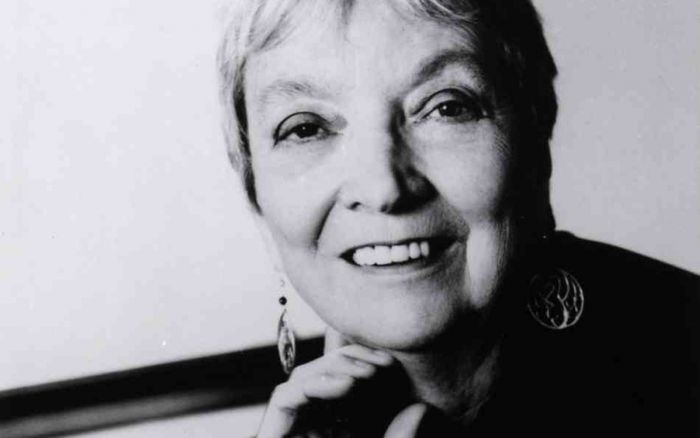Madeleine L’Engle, 1918-2007

While we were on vacation, we learned that Madeleine L’Engle died at the age of 88. I’ll admit to not being as familiar with her acclaimed fiction as I probably should be, but I would be remiss if I didn’t mention the impact her nonfiction, specifically Walking on Water, had on me.
I read Walking on Water at a fairly critical time in my life, when I was first attempting to figure out what it meant to be a Christian and an artist (or at least, one who was deeply interested in art). And I still recommend it mightily.
Even just a casual skimming reveals thoughts and ideas that are charitable, gracious, and above all, filled with a sense of delight and wonder at the creative spirit with which God has gifted all of us. Here are a few random passages:
If I cannot see evidence of incarnation in a painting of a bridge in the rain by Hokusai, a book by Chaim Potok or Isaac Bashevis Singer, music by Bloch or Bernstein, then I will miss its significance in an Annunciation by Franciabigio, the final chorus of the St. Matthew Passion, the words of a sermon by John Donne.
Stories, no matter how simple, can be vehicles of truth; can be, in fact, icons… Stories are able to help us to become more whole, to become Named. And Naming is one of the impulses behind all art; to give a name to the cosmos we see despite all the chaos… When we look at a painting or hear a symphony or read a book and feel more Named, then, for us, that work is a work of Christian art. But to look at a work of art and then to make a judgment as to whether or not it is art, and whether or not it is Christian, is presumptuous. It is not something we can know in any conclusive way. We can know only if it speaks within our own hearts and leads us to living more deeply with Christ in God.
I need not belabour the point that to retain our childlike openness does not mean to be childish. Only the most mature of us are able to be childlike. And to be able to be childlike involves memory; we must never forget any part of ourselves. As of this writing, I am sixty-one years old in chronology. But I am not an isolated, chronological numerical statistic. I am sixty-one, and I am also four, and twelve, and fifteen, and twenty-three, and thirty-one, and forty-five, and… and… and…
If we lose any part of ourselves, we are thereby diminished. If I cannot be thirteen and sixty-one simultaneously, part of me has been taken away.
The painters and writers who see the abuse and misuse of freedom and cry out for justice for the helpless poor, the defenseless old, give me more hope. As long as anybody cares, all is not lost. As long as anybody cares, it may be possible for something to be done about it; there are still choices open to us; all doors are not closed. As long as anybody cares, it is an icon of God’s caring, and we know that the light is stronger than the dark.
It is not easy for me to be a Christian, to believe twenty-four hours a day all that I want to believe. I stray, and then my stories pull me back if I listen to them carefully. I have often been asked in my Christianity affects my stories, and surely it is the other way around; my stories affect my Christianity, restore me, shake me by the scruff of the neck, and pull this straying sinner into an awed faith.
Jeffrey Overstreet has posted his thoughts. Much more information can be found on L’Engle’s website.